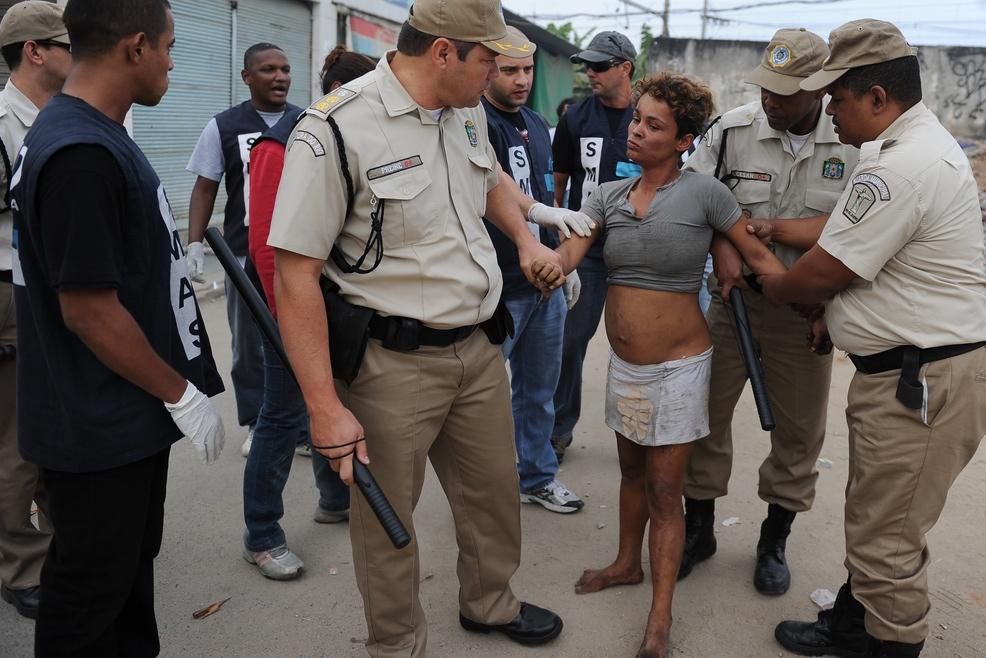Rio slum-clearing plan brings new concerns for Brazil
Security forces have swept through Rio’s slums.
RIO DE JANEIRO, Brazil — It has become the international calling card of Rio de Janeiro’s government; the “pacification” of the city’s once notorious favelas.
Rio’s pacification project began just over 3 years ago and has seen dozens of shantytowns — once ruled by rifle-toting gangsters — permanently occupied by so-called “pacification forces”, community police officers tasked with winning over the hearts and minds of residents.
During a speech in London last year, Rio’s governor Sergio Cabral, said Brazil’s economic boom and the pacification project meant the city was “now living a new chapter in its history.”
“We have successfully solved this scenario of [economic] stagnation, placing Rio in the direction of growth with a conscious and consistent public-safety policy. We are bringing peace back to our state,” he said.
Read more: Crack dens in Rio take a hit
The most recent shantytown to be “pacified” was Rocinha, a gigantic hillside community home to well over 100,000 people. In November, over 3,000 troops stormed the slum, ruled by gangs for decades.
Specialists have praised the pacification or UPP project as an unprecedented, if partial victory against Rio’s drug gangs.
But there are growing complaints that the initiative — which has so far focused almost exclusively on favelas in tourist areas or near World Cup and Olympic sports venues — may simply be moving the problem to more distant parts of the city, out of the public eye.
Reports in today’s newspapers suggest that drug traffickers from Mangueira, a slum near Rio’s world famous Maracana football stadium that was “pacified” in June last year, have merely relocated to Preventorio, a favela in Niteroi, a city over the bay from Rio.
Residents of Preventorio told Rio’s O Globo newspaper that around 40 heavily-armed criminals had seized control of their once-peaceful community.
“Peace has abandoned our community,” one local told the newspaper. “What is the point in removing the crooks from over there if they are just going to come here?”
In Rocinha, meanwhile, a spate of armed robberies and two recent murders have underlined the challenges that lie ahead. When traffickers ruled the region with an iron fist, beating or murdering those who broke their rules, crime was said to be virtually non-existent.
Now they are gone, some residents say they fear an upsurge in crime.
